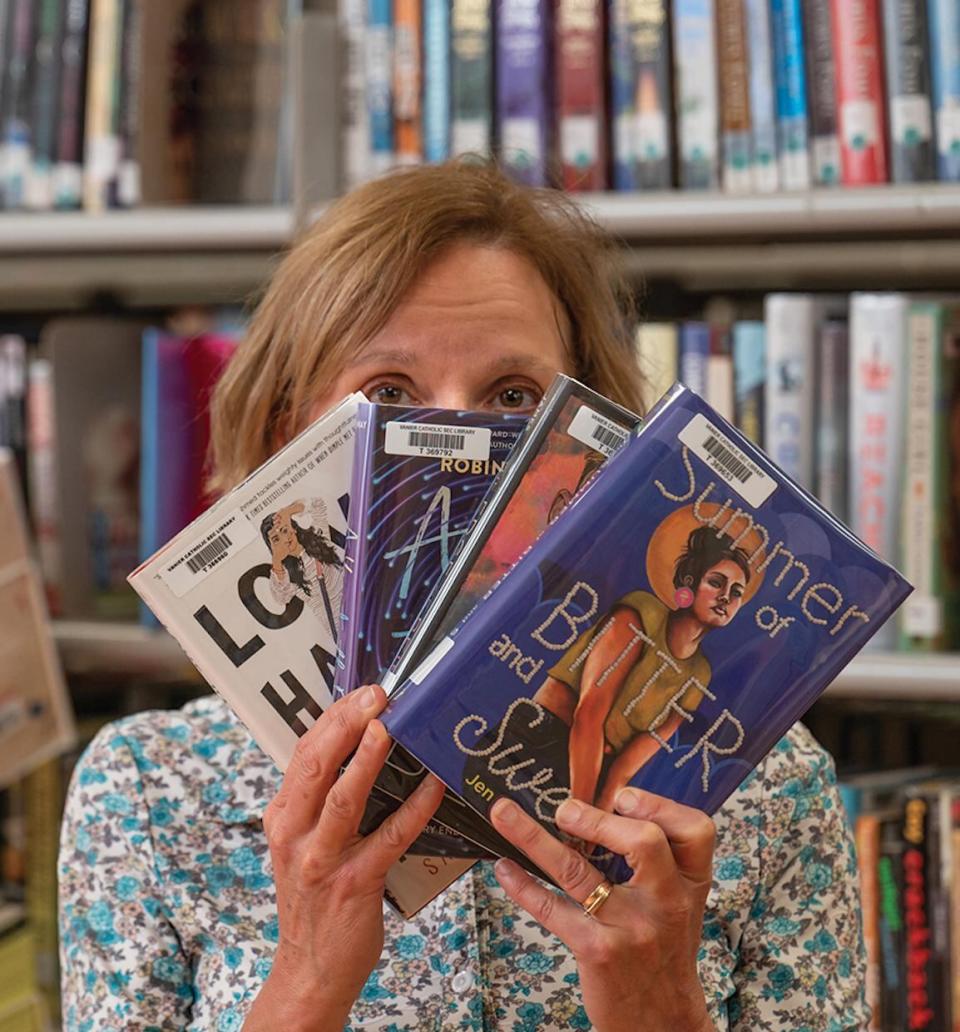'It's challenging to keep up': Yukon teachers ask for guidance on use of AI in schools

Three teachers from different Whitehorse high schools say they want guidance from the education department about how to deal with artificial intelligence being used by students or in the territory's schools.
Consistency and commitment across secondary schools, says Janet Clarke says, can only benefit students and staff going forward. Clarke is a teacher-librarian at St. Francis of Assisi high school in Whitehorse and is also the chair of the Yukon Teacher-Librarian Sub-Association.
Clarke, along with two other teacher-librarians from F.H. Collins and Porter Creek Secondary Schools, have written a letter to the department of education, saying AI is a changing technology and that teachers could use support keeping up with it.
"While it's challenging to keep up, we do see the benefit to having conversations beyond our internal departments and schools," the letter states.
Clarke said the department has not yet responded to their letter.
"We didn't have any solutions to any of this," Clarke said. "It was just the desire to have … a group of people sit down and come up with some consistent approaches."

Janet Clarke, a teacher-librarian at St. Francis of Assisi school and chair of the Yukon Teacher-Librarian Sub-Association, says she's definitely seen and heard of generative AI tools being used by students at her school. (Submitted by Janet Clarke)
Clarke says she's definitely seen and heard of generative AI tools being used by students at her school. This has posed challenges for assessing students' skills.
"Several teachers are just having assignments done in the classroom, so that you can keep track of what's happening .. just to ensure that it's the students' own work," she said.
Clarke herself has had students submit work that hasn't seemed entirely their own. She's dealt with that by having conversations with the students and asking them to do the work without using technology. She's also tried to make it clear to students that, "the expectation is you were doing this work yourself."
There has been a sub-association of teacher-librarians for years, however not all schools have teacher-librarians.
Clarke says teacher-librarians "took the lead on this."
"We just love collaboration, but sometimes that is easier said than done, with everything else people are dealing with," she said.
Something specific that educators might want guidance on, Clarke said, is in having access to tools to help detect when AI has been used in assignments and homework.
'Risks and opportunities'
Ahmed Abu Zuraiq, is a Whitehorse resident and a PhD candidate at Simon Fraser University researching aspects of generative artificial intelligence, which can create text, images, videos, and even code based on prompts.
He thinks there should be guidelines for schools that makes sense, and says AI provides "different risks and opportunities," depending on the type of class and the academic level.

Ahmed Abu Zuraiq of Whitehorse is a PhD candidate whose research focuses on generative artificial intelligence. (Submitted by Ahmed Abu Zuraiq)
Beyond teaching basic skills, Abu Zuraiq says with more advanced courses, "you might actually start talking more about how can you co-create with AI." That could allow students to feel like assignments are their own work, and have a sense of ownership toward them.
When it comes to tools to detect AI being used, Abu Zuraiq says it is a race "between the large language models getting better, and then the detectors trying to … catch up."
He says students who know how to use AI tools will figure out a way to avoid the detection tools.
Abu Zuraiq says he believes the best approach is for teachers to have good personal connections with students, in smaller classrooms. That would make it easier to know when students' work is not their own.
"So that educators and teachers are able to actually have this mental model of each individual student, and be able to cater to them and know how well they are," he said.


